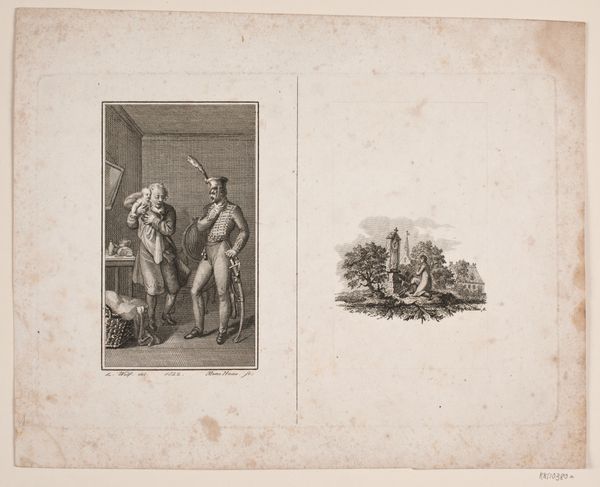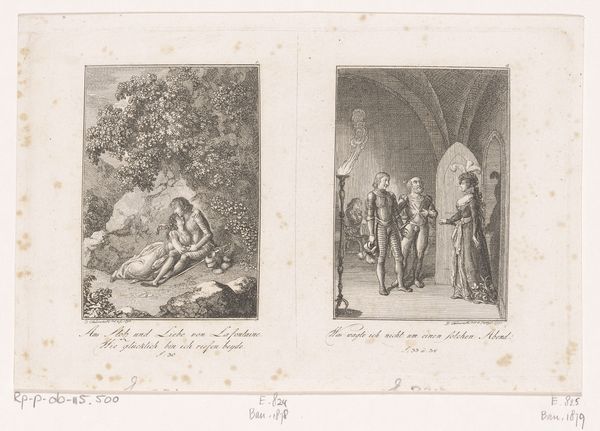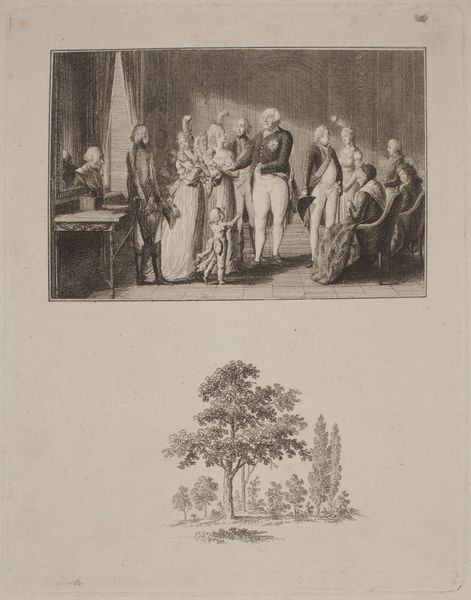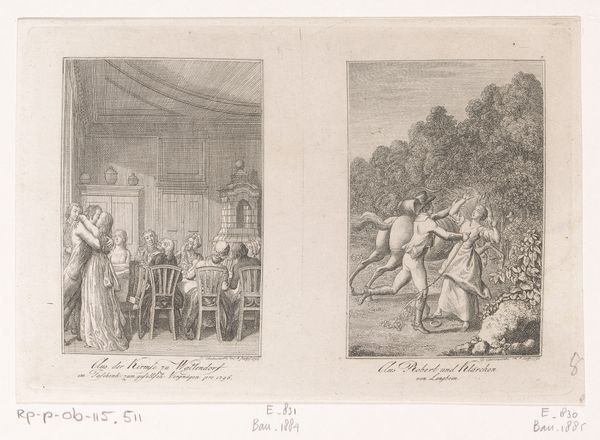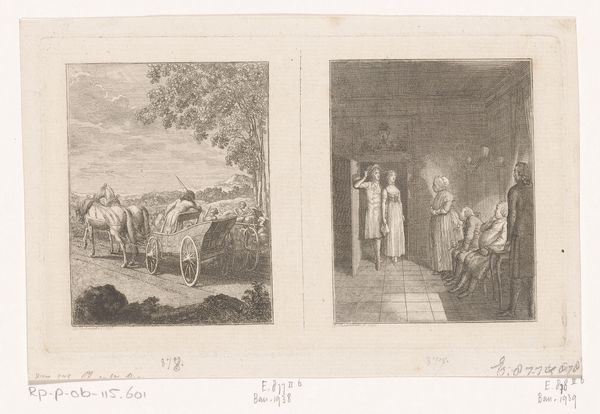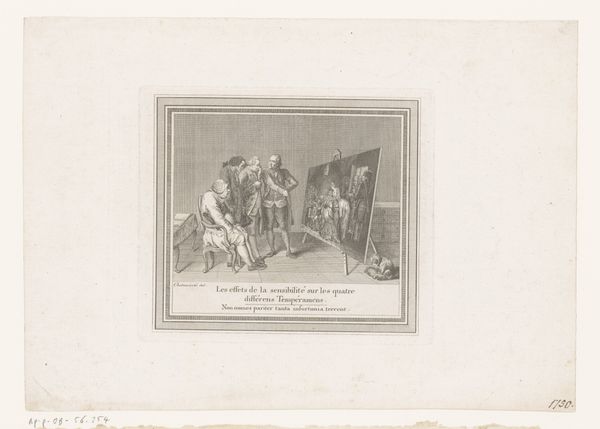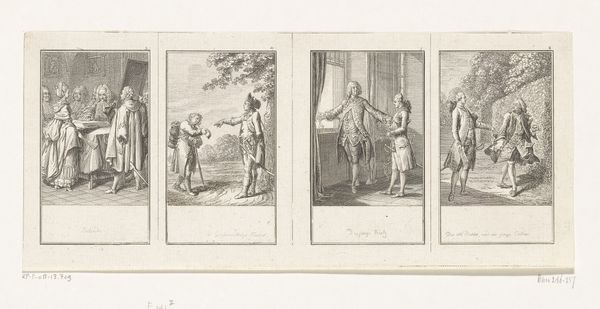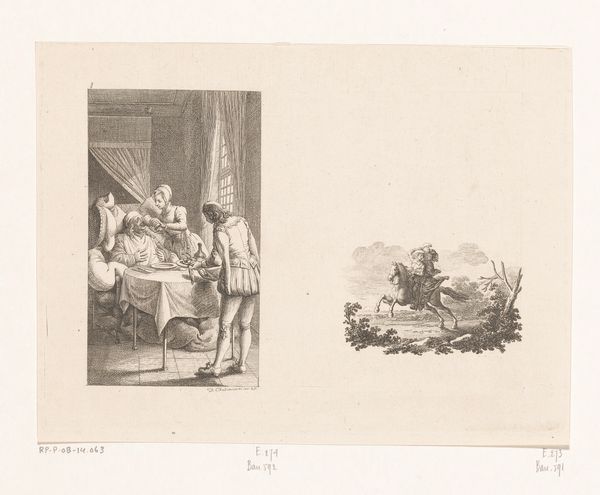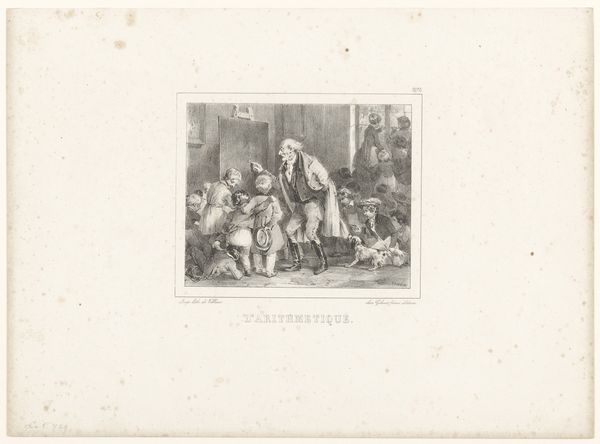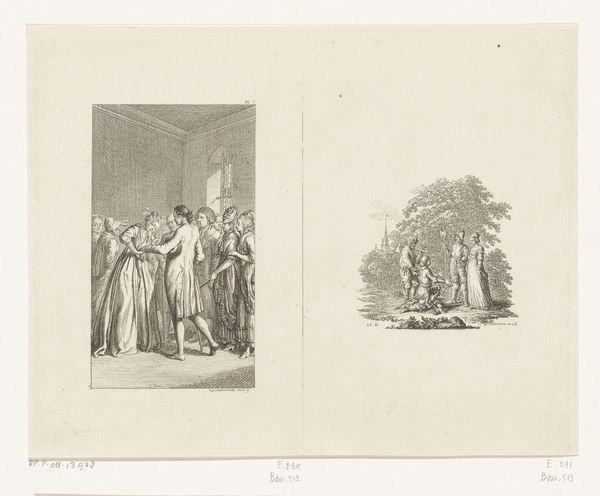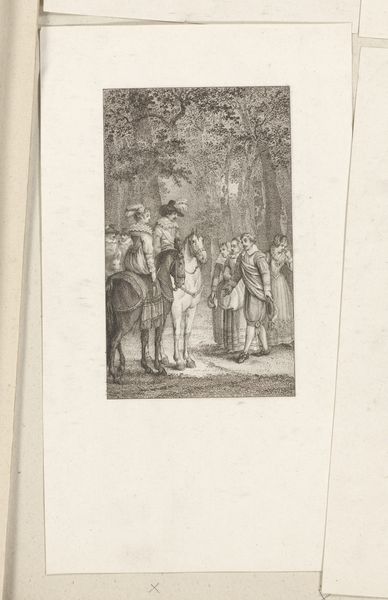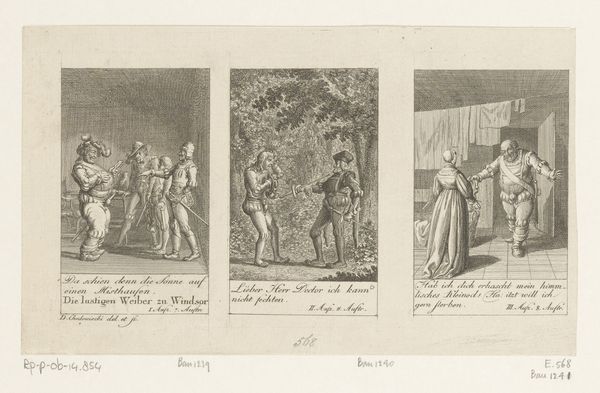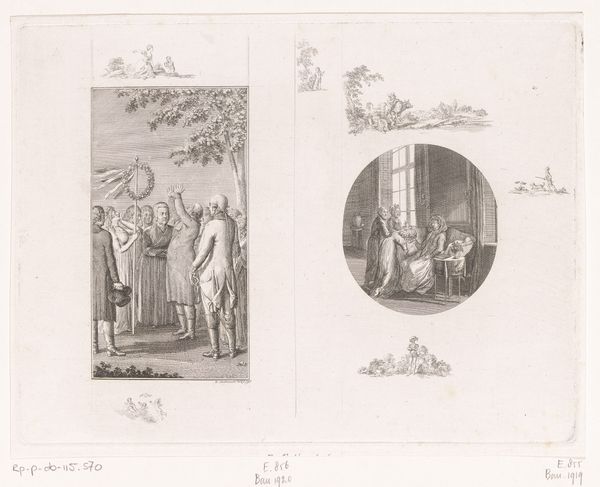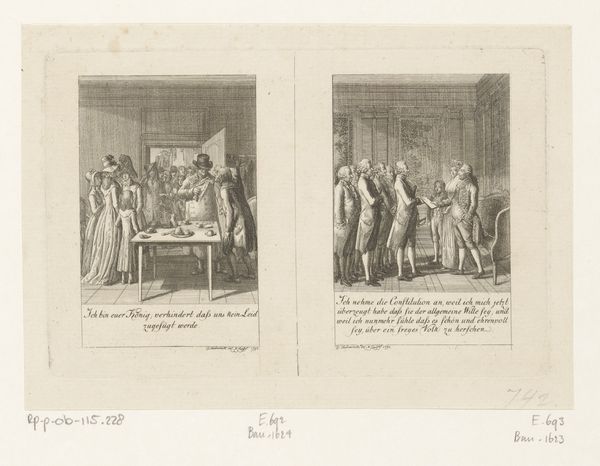
Friedrich Wilhelm III met zijn gezin na de dood van zijn vader 1799
0:00
0:00
danielnikolauschodowiecki
Rijksmuseum
etching
#
portrait
#
neoclacissism
#
etching
#
etching
#
genre-painting
Dimensions: height 120 mm, width 164 mm
Copyright: Rijks Museum: Open Domain
Daniel Nikolaus Chodowiecki made this print of Friedrich Wilhelm III and his family using etching, a printmaking technique with a long history. The image is achieved by drawing into a wax-covered metal plate with a sharp needle. Acid then bites into the exposed lines, which are later inked and printed. What is interesting here is the way the etched line varies in depth and density, creating tone and texture. Look closely, and you can see the fineness of the lines used to define the figures' clothing, contrasting with the more roughly worked areas of shadow. Etching was a relatively democratic medium in the 18th century, allowing for the wide distribution of images. Here, it captures a moment of dynastic transition, but also gives us insight into the fashions, interior décor, and social rituals of the time. The very act of etching – a process involving skilled labor and mechanical reproduction – mirrors the social and political transformations that were underway, as aristocratic power was gradually being supplanted by new forms of production and consumption. It’s a reminder that art is always embedded in a web of material processes and social relations.
Comments
No comments
Be the first to comment and join the conversation on the ultimate creative platform.
